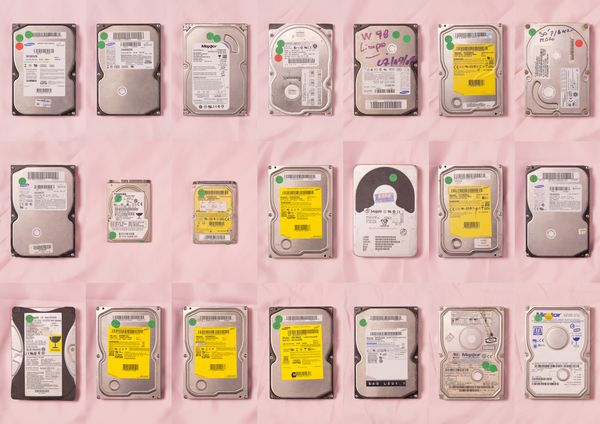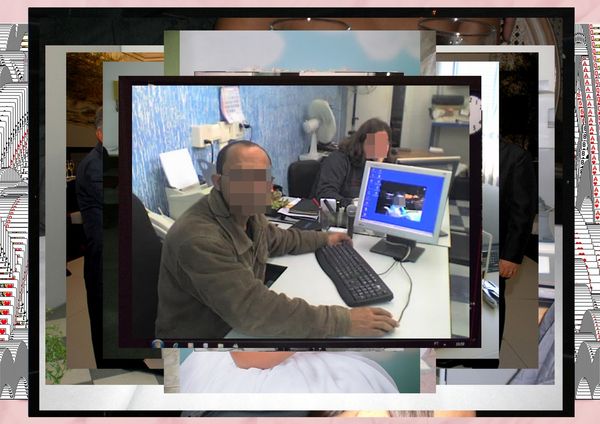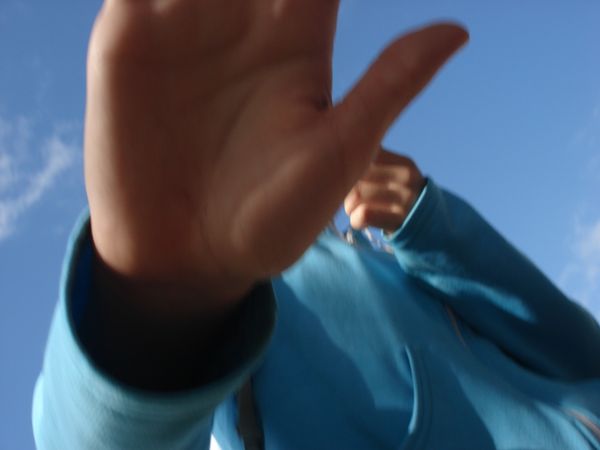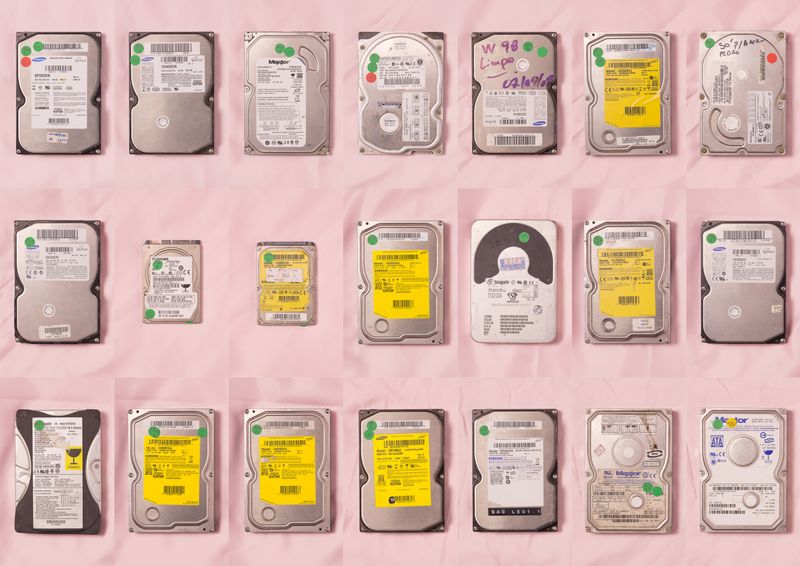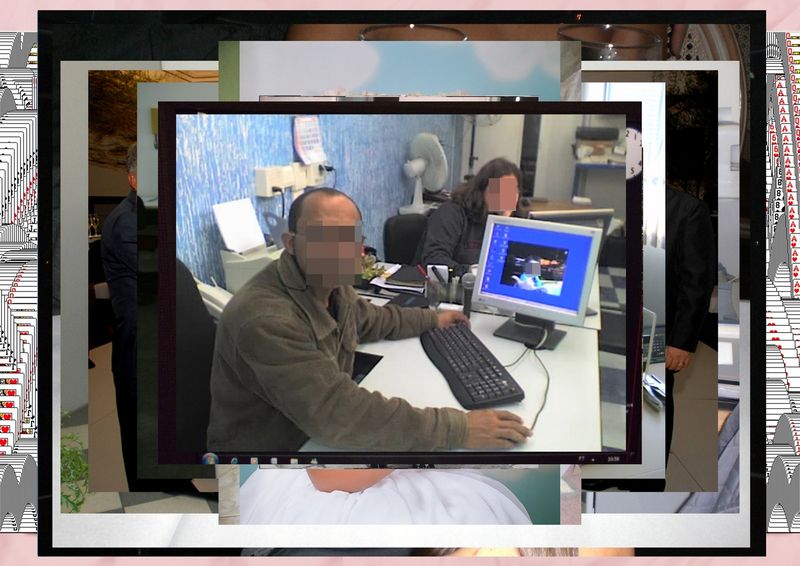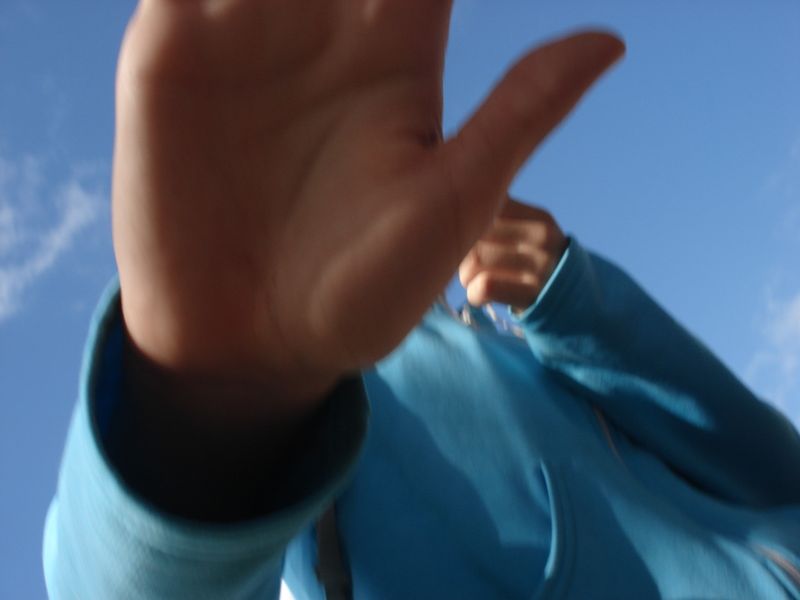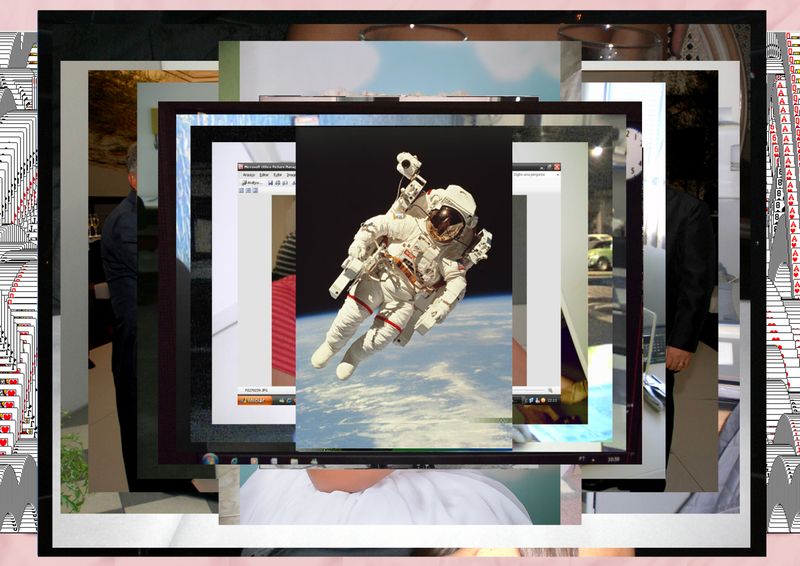A New Life for Obsolescent Photos
-
Published23 Aug 2017
-
Author
Brazilian photographer, Leo Caobelli salvages discarded images from abandoned hard drives and reshuffles them into new stories.
Brazilian photographer, Leo Caobelli salvages discarded images from abandoned hard drives and reshuffles them into new stories.
Leo Caobelli’s collection of hard disks exceeds one hundred, meticulously grouped in wooden crates in his Porto Alegre studio, labeled with circular stickers of different colours based on content: yellow, if they hold just a few recoverable files; red, if they are of no use; or green, if they still contain photographs - the coveted loot.
Caobelli has been collecting hard disks for two years, from flea markets and e-waste warehouses in Porto Alegre, São Paolo, Montevideo, and curiously Lagos, Nigeria, “the final destination for e-waste from more developed countries,” he says. Bought by weight, $1 per kilogram, these bundles of wires and chips are a bulky archive from a recent but already outdated era.
The collector's habit was born from what he calls an “archivist impulse.” A Brazilian photographer who began his career as a photojournalist for Folha de São Paulo, a prominent Brazilian newspaper, Caobelli is now stepping away from traditional documentary photography in search of a mode of image-making where the themes of memory, obsolescence and transformation all intertwine. “I was always interested in documentary, but in a different way of doing it,” Caobelli says, “using other people’s images, trying to take the images out of their original context and put them in another story.”
The images he found are amateur shots of ordinary moments: people working or playing at their computers; someone dressing up and posing for the camera; the open hand of a woman shielding her face from the lens. His work gives viewers a chance to compare discarded photographs with the curated images we anxiously proliferate. Citing In Defense of the Poor Image, a reference to German visual artist Hito Steyerl’s work, Caobelli argues: “We're living in this moment where... we're all photographing all the time, not to create documents of memories but to communicate to everyone where we are, what we are doing,” quick snaps that vanish after 24 hours.
But these unassuming images now have a second chance to be seen and become stories. It’s this probability - as Caobelli picked the hard drives by chance - that informs the project’s title: Some Little Oasis of Fatality Amid a Wilderness of Error, a line borrowed from Edgar Allan Poe’s tale William Wilson. “The ‘wilderness of errors’ is a metaphor for the warehouses, and the [hard disks] are all there, but…this is for me the ‘oasis of fatalities,’ when you grab something and you find the images and the stories in there.”
The retrieved pictures are presented through “three games of chance,” videogames such as Solitaire, where images are layered randomly, stripped of context, once the viewer selects the first photo.
But Caobelli’s work revolves mostly around the concepts of privacy and appropriation in this era of mass production, consumption and distribution of online images. At a time when we are both the producers and consumers of the private pictures we curate and share through the ether, and when our features are constantly recorded - at airports, banks, blurry silhouettes on Google street view - for the purpose of public order and security, what are the ethical implications of appropriating private images?
© Leo Caobelli, from the series, Some Little Oasis of Fatality Amid a Wilderness of Error
“We dilute the value of privacy in the contemporary world,” Caobelli says. What should we feel and demand, faced by appropriation - or the threat of it - when our privacy is in danger of exploitation, while simultaneously we’re conscious of our images’ pervasiveness? At the centre of Caobelli’s analysis is an urge toward subversion: “That’s really what interests me, to take some problems of our daily life and expose them.”
--------------
Leo Caobelli is a Brazilian photographer based in Porto Alegre. His work intersects photography, video, games, and explores the themes of appropriation, privacy, and transformation. Caobelli collaborates with various artists, and he is currently enrolled in a Masters in Visual Poetics at the Visual Arts school of UFRGS.
Lucia De Stefani is a multimedia reporter focusing on photography, illustration, culture, and everything teens. She lives between New York and Italy. Find her on Twitter and Instagram.
